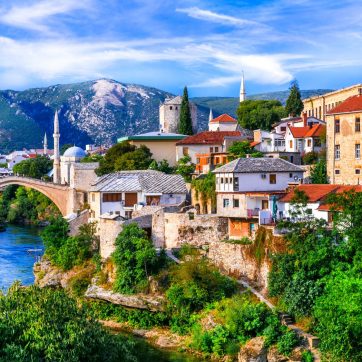
A successful implementation of the European Green Deal requires the involvement of the EU’s neighbouring regions, such as the Western Balkans.
EIT Climate-KIC has joined forces with EIT Raw Materials, EIT Health, EIT Food, EIT Manufacturing, EIT Digital and EIT Urban Mobility in a Cross-Knowledge and Innovation Community (cross-KIC) initiative to strengthen cooperation and increase the uptake of circular economy principles in the Western Balkan region (Albania, Bosnia and Herzegovina, Kosovo, Montenegro, Republic of Northern Macedonia and Serbia). The initiative aims to strengthen outreach in the region, engage local actors in education, entrepreneurship and policy activities and stimulate synergies between KICs and key local actors at national and regional levels.
Covering various societal challenges – from climate, food, health, raw materials, digital, urban mobility to manufacturing – and having developed expertise aligned with the key needs of the region, the seven KICs will leverage expertise on circularity as an overarching approach to boost economies, build capacity and foster knowledge exchange in the region. The first year kicked-off with activities aiming to better understand the ecosystem and engage key actors through work on systems and stakeholder mapping for policy engagement, education and capacity building for higher education institutions, entrepreneurship and business creation programmes, as well as outreach to citizens and consumers.
Systems and stakeholders mapping for policy engagement
As the first regional effort of its kind, the initiative has launched a co-creation process to identify and map existing circular economy challenges across the region, enabling a better understanding of regional ecosystems associated with the circular economy and identifying how KICs can connect and build further synergies. In the longer term, this will lead to the establishment of a synergy platform to increase exchanges between managing authorities and relevant stakeholders, and will support the establishment of a cross-regional inter-ministerial working group on circular economy involving national authorities from the region.
To date, 700 actors across the region and more than 460 actions in the circular economy sector have been identified. The mapping and stakeholder engagement will serve as a basis for policies and actions, as well as investments and decisions for innovation actors based on what the ecosystem already offers, and will provide a starting point for the joint programming planned for 2022.

